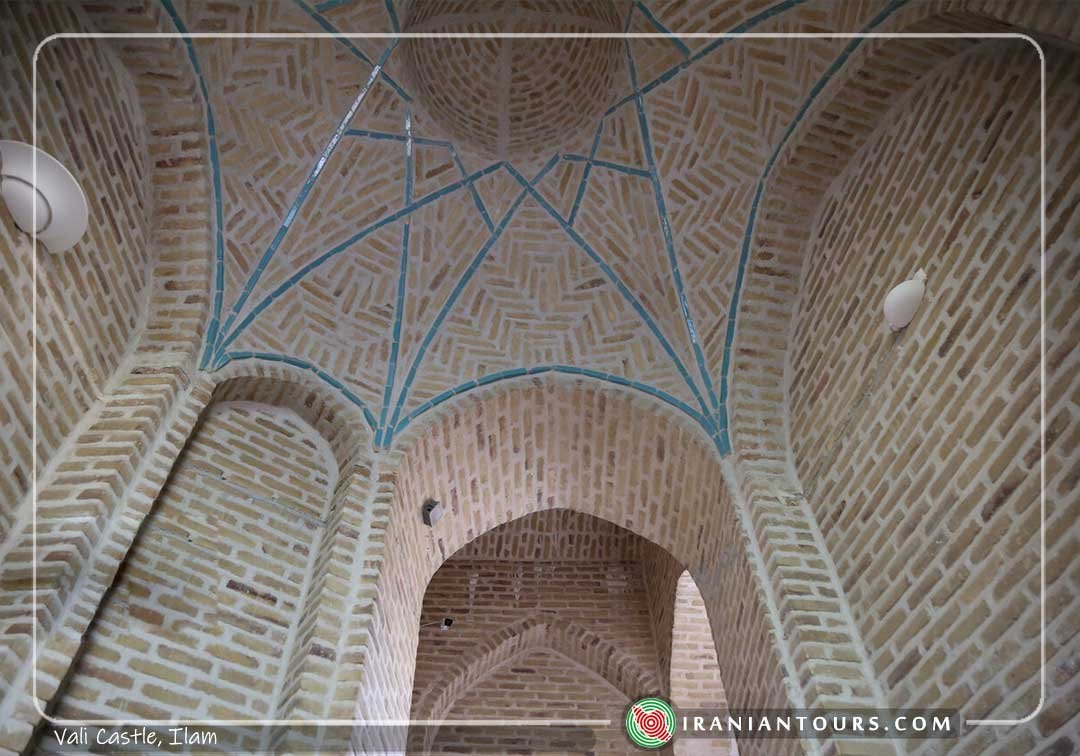The Vali Castle
Vali Castle of Ilam is one of the most beautiful buildings related to the Qajar period. It was constructed at Gholamreza Vali Khan’s command, in Miankuhi plain of Ilam above Choga Mirak hill (in a district named Hossain Abad Fili) in 1326 S.H, in a land with 2500m2 area. After constructing the castle, Gholamreza Khan ordered an inscription with 180cm length written in Nastaliq script to be engraved and installed above the eastern entrance; the inscription, however, fell down during the imposed war and it is currently kept in another part of the castle. The alcove has been placed on the north side that is a room considerably larger than other spaces in the castle. A small spring is observed in the center of the alcove which was firstly decorated in marble and after reconstruction replaced by colored tiles. In addition, one can see some typical mirror works in the ceiling a part of which has been remained on the western side that is extremely attractive and beautiful. Interesting among the architectural beauties of this building are lattice windows with colored glass, lattice brick fences in turquoise blue color, Orosi, round columns, painted capitals, and decorative bow arches. The most commonly used materials in building the castle are interconnected bricks and stones. Totally, Vali Castle includes five small and 20 large rooms, four porches as well as two small terraces on the south side. The water of this castle has been supplied through BB Spring using a traditional method in which the spring water is directed toward the central yard of the castle with the aid of a water pipe (Tanbusheh in local language).
Vali Castle was inscribed as one of the main national historical works in 1376 S.H., Khordad 19, with registration number 1798. The building was transferred into the Ethnography Museum under the supervision of the Cultural Heritage Organization. The museum has different parts where they have displayed the Ilam customs, culture, tribes, political and cultural characters using several sculptures. Currently, the Ethnography Museum of Ilam is one of the richest specific museums all around the world. It is located in front of the Cultural Heritage Organization, in Pasdaran street, open to the public every day except for Fridays.




